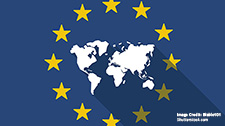Relational Dynamics and Italy’s Strategic Integration into the Indo-Pacific

Riccardo Villa and Irene Spennacchio
The Indo-Pacific region is currently the primary arena in which global geopolitics is being played out. Italy has taken a more flexible approach, cultivating links and engaging in strategic activities without having an official strategy in place, despite the fact that several other governments have formed formal plans for the Indo-Pacific region. Initially, Italy’s involvement in the Belt and Road Initiative was focused on establishing business linkages, particularly with China. In recent times, however, Rome has been increasing its involvement in multilateral cooperation, maritime security, and regional stability.
This issue brief argues, through the application of a relational theory of international relations, that Italy’s approach to the Indo-Pacific region is defined not by strict state-centric policies but rather by dynamic networks. Through participation in the Pacific Islands Forum and the formation of strategic partnerships with Vietnam and South Korea, Italy has successfully woven itself into a network of regional ties.
Related Publications
-
Navigating the Indo-Pacific: How Australia and the EU Can Partner for Peace, Stability, and Prosperity
To navigate the choppy waters of the Indo-Pacific, the EU and Australia must be on the same wavelength regarding shared interests in rules, values, and an open and liberal economic […]
-
Fostering Order In The Indo-Pacific: What the EU Can Learn From and Do With Australia, India, Japan, South Korea, and Vietnam
Executive Summary One of the most critical challenges of this century is fostering order in the Indo-Pacific. (Dis)order in this space will significantly affect the international order. Not only […]
-
Forecasting European Security in 2025: Will Transatlantic Ties Test Europe’s Indo-Pacific Limits?
In late December 2024, Finland—one of the latest entries to the North Atlantic Treaty Organization (NATO)—seized an oil tanker, with alleged links to Russia’s so-called “shadow fleet,” on grounds of […]
-
“Yizhou 夷洲” and “Liuqiu 流求” in Historical Chinese Texts: International Relations on the Northeast Asian Seas (3rd-17th Centuries)
Sun Quan 孫權, Emperor Da of the Eastern Wu, and Emperor Yang of Sui Yang Guang 楊廣 sent armies across the sea to invade Yizhou and Liuqiu between the 3rd […]
-
Challenging Western Views: Understanding Power and Stability in East Asia; An Interview with DAVID C. KANG
Dr. David C. Kang is Maria Crutcher Professor of International Relations at the University of Southern California. A leading expert in East Asian security, international relations, and political economy, Dr. […]



